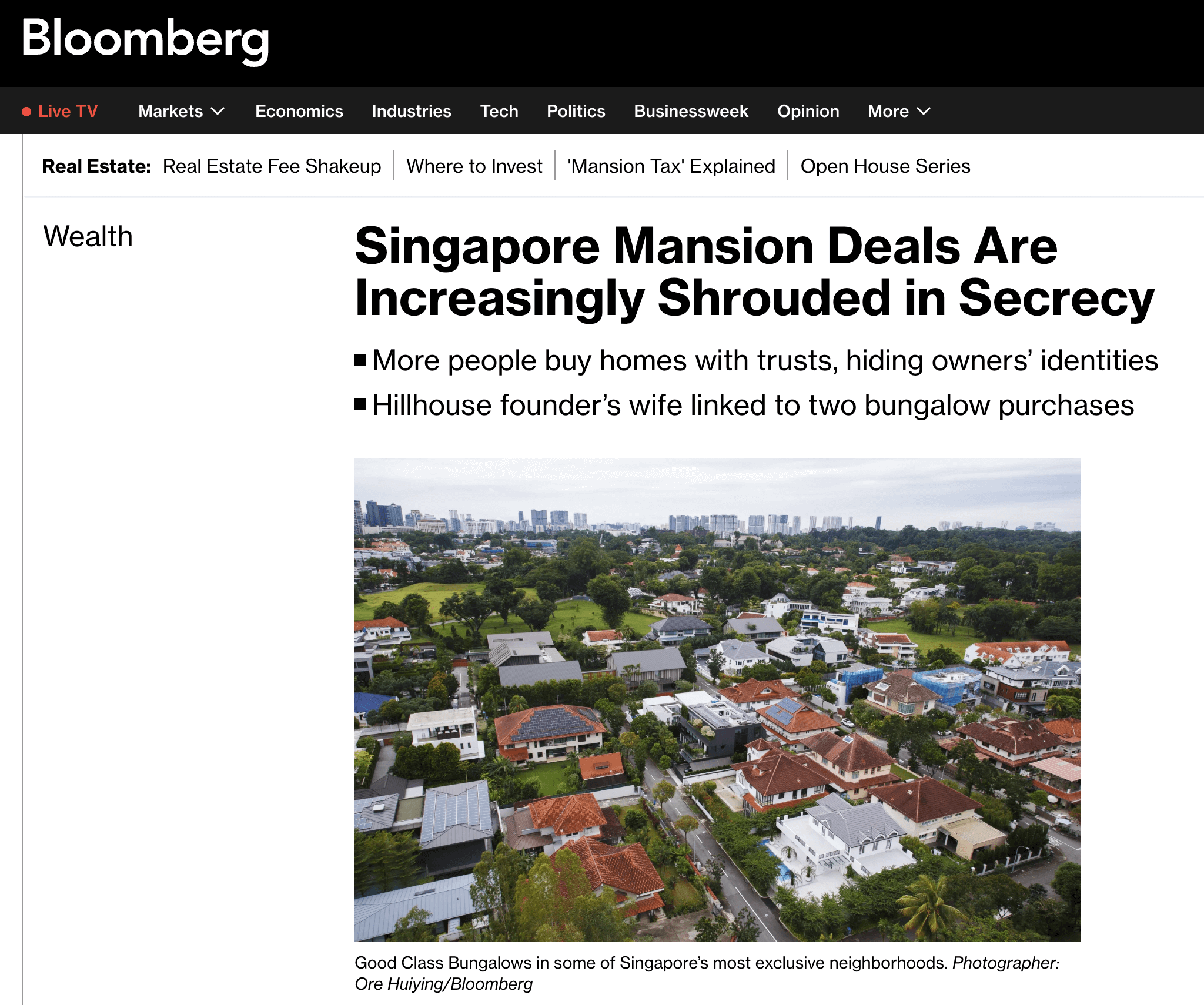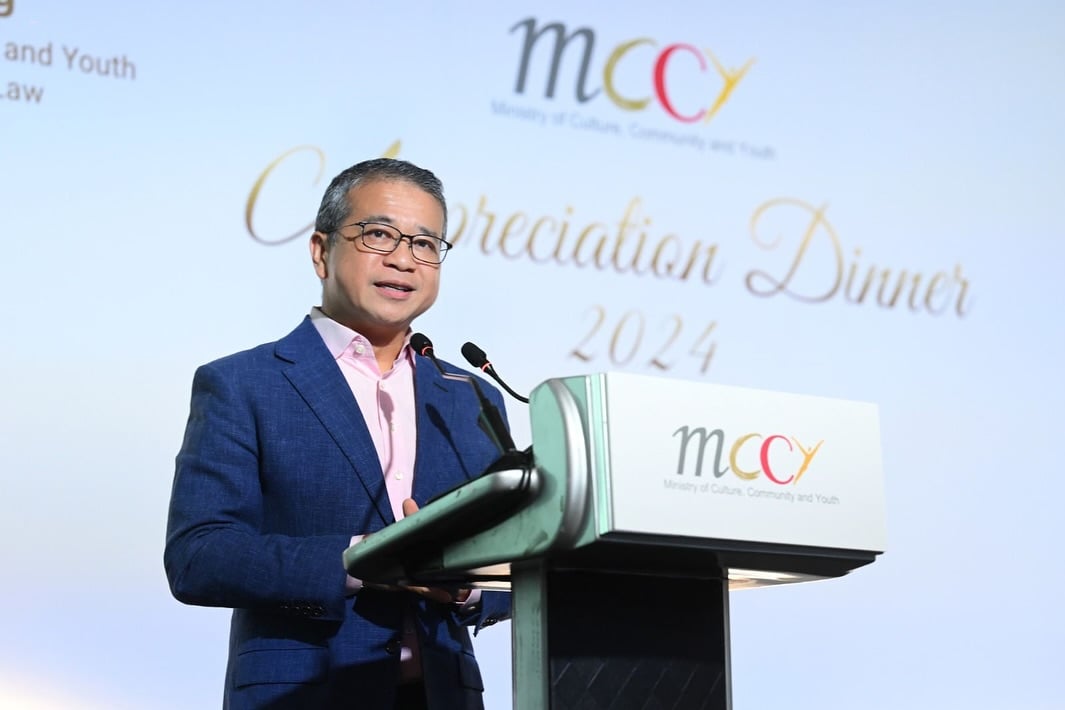Bloomberg & other publications issued POFMA order over articles about Singapore GCB transactions
Global media giant Bloomberg has been issued a Protection from Online Falsehoods and Manipulation Act (POFMA) order for its 12 Dec article on Good Class Bungalow (GCB) transactions in Singapore.
The Singapore government identified several claims in the article as “falsehoods”.

Source: Bloomberg
Minister for Law and Home Affairs K. Shanmugam and Minister for Manpower Tan See Leng first criticised the piece on 16 Dec, calling its allegations about their property transactions “libellous”.
Both ministers announced plans to pursue legal action against Bloomberg.
The Edge Singapore, The Independent Singapore & The Online Citizen also issued POFMA orders
On Monday (23 Dec), Minister for Culture, Community and Youth and Second Minister for Law Edwin Tong directed Correction Directions to be issued to Bloomberg L.P., The Edge Singapore, The Independent Singapore, and The Online Citizen for spreading “false statements of fact” regarding GCB transactions.

Source: Edwin Tong on Facebook
The Edge Singapore had republished the Bloomberg article in full on its website and social media on 12 Dec.
Meanwhile, The Independent Singapore and The Online Citizen published their own articles and reposted them on their respective social media platforms.
Under the Correction Directions, all four publications are required to issue correction notices against the original articles and posts.
These notices must state that the articles contained false statements of fact and provide a link to the Singapore Government’s clarification.
This allows readers to compare both versions and form their own conclusions.
Government issues corrections to clarify falsehoods
The Singapore Government also released a detailed list of corrections regarding the false statements made by these four publications.
Falsehood: Government records of GCB transactions are unavailable if no caveat is lodged.
Clarification: GCB ownership and transfer records are available via the Integrated Land Information Service (INLIS), even without a caveat. Caveats are not intended for tracking property transactions or ensuring transparency.
Falsehood: Ultimate beneficial owners’ identities in GCB transactions via trusts or shell companies are not disclosed to or known by the government.
Clarification: Buyers, including those using trusts or shell companies, must disclose their identities. Trust deeds and company ownership records are also verified.
Falsehood: GCB transactions occur without government checks on beneficial owners’ identities.
Clarification: The government verifies identities during property transfers, including checking trust deeds and ensuring compliance with company ownership laws.
Falsehood: Responsibility for preventing money laundering in property transactions lies solely with agents and service providers.
Clarification: The government has a comprehensive anti-money laundering framework, requiring gatekeepers like lawyers and financial institutions to conduct thorough checks and report suspicious activity.
Falsehood: The lack of records and disclosure requirements enables individuals, including Ministers and wealthy migrants, to facilitate money laundering through GCB transactions.
Clarification: The government enforces strict disclosure and verification rules for GCB transactions and has not approved foreign purchases of GCBs since 2021. These measures, alongside anti-money laundering efforts, prevent money laundering risks.
For full details on the corrections, visit the Factually page.
Have news you must share? Get in touch with us via email at news@mustsharenews.com.
Featured image adapted from SM&W.








